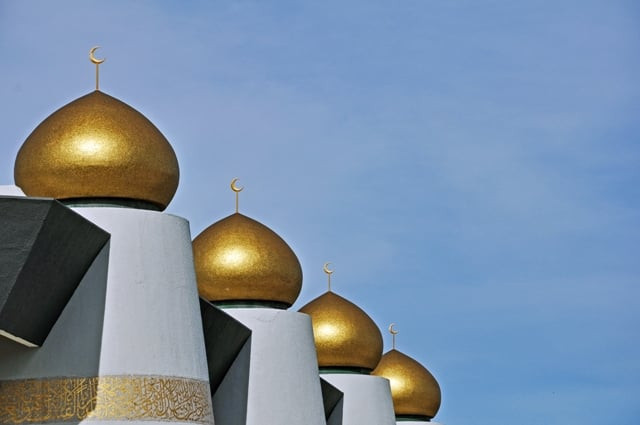There’s one rule you just don’t break: never discuss politics or religion with people you don’t know. You never know whose toes you’ll step on or which lines you’ll cross. I’m about to ignore this rule for this column because in a moment of epiphany I realised that my government disregards this rule too.
And it comes in the form of those neatly colour-coded textbooks that ensure that whatever my personal beliefs on religion are, my approach to religion will always be distinctively Pakistani-coloured.
Poor old Islamiat. Within the great triumvirate of Unique-to-Pakistan subjects of Pakistan Studies, Urdu and Islamiat, the last gets the worst flak. “It teaches our children to be terrorists,” cried one student. “No, it teaches them morals and respect for our state,” said another.
It’s a subject that attracts controversy for the same reason that Pakistan attracts controversy: nobody quite knows how to handle it. Several students haven’t even taken it as a subject (Islamiat was only introduced in the 1970s under ZA Bhutto). What is it, how did it get here? And how do you achieve a standardised system when so many people disagree on the finer points of the religion?
For people my age, Islamiat begins and ends with Farkhanda Noor Mohammad. Her Islamiat textbooks for both Matric and O’ Levels told us that Prophet Mohammad (PBUH) gave free sweets and gifts to children. We completed word search games (Can you find the words Salaat and Hajj in the crossword grid?)
These were the days of the crayon-filled camel drawings. But come Class VII and Farkhanda seemed to lose it.
Suddenly Islamiat was about dramatic battles and killing the Quraysh, signing treaties with Jews and planning takeovers. The chapters on love for elders and kindness to animals took a back seat. We had moved on to liver-chewing Hind.
By the time the O’ Levels hit, nothing made sense any more. It wasn’t that we were older, which we were, but we were also thoroughly depressed by our exams.
“If I get a D grade in Islamiat does that mean I’m going to hell?” asked one student forlornly.
Without skipping a beat someone replied: “Don’t worry, it means foreign unis won’t think you’re a terrorist”.
Yup, the post-9/11 kids had certainly picked up things Farkhanda forgot to mention.
Maybe it’s not the subject. It’s the way it’s taught. We can testify to that. One Islamiat teacher had a habit of Arabising our names. Ali became Ali-ullah, Hamza became al Hamza and all our surnames had ibns attached to them during roll call. Another teacher liked to say that Shaitan or the Devil lived inside the Chipkali or lizard. Whenever one surfaced in the classroom, he ran around screaming with a can of Mortein.
Yet another teacher told us that co-educational schools were haraam. Fair enough, so why did she hang around in the co-ed staffroom?
Islamiat also has a habit of slipping into other subjects. One girl currently studying for Intermediate Physics can’t for the life of her understand the chapter entitled ‘Physics and Muslims’. Saying ‘Salaam’ in Urdu was a natural reflex, talking about peace for our brothers and sisters in Islamiat felt forced. Perhaps it’s particular to only ‘English Islamiat’ and ‘Urdu Islamiat’ makes more sense?
But English Islamiat is all we have.
The official position of the Cambridge International Examinations (CIE) has always been to stick to only the basic tenets and nothing else. This is both the subject’s greatest strength and unfortunately, to some, also its greatest weakness. This means that the CIE is playing it safe but it also kills the point of having the subject in the first place. You and I both know that God is One — but my exam required me to write a five-page essay on this. The syllabus doesn’t dwell on anything further.
And sometimes it has nothing to do with the subject itself. When it comes to Pakistan Studies or Urdu, most Pakistani Muslim parents aren’t troubled if their child is clueless about the Constitution or fails to memorise a Ghazal or two. But they will do their best, whether they are atheists or fundamentalists, rightwingers or leftists, to teach their children at least some basic Islam. So the State is essentially teaching children what they have already picked up from their parents and grandparents. If their family is Sunni, they followed those ideals etc. etc. But at the same time it avoids discussing topics we desperately need to discuss — sects, rights, inter/intra-religious tensions. Political correctness is one thing but don’t do a disservice to a subject by not allowing it the maturity it requires. The subject has failed, not because it’s teaching the wrong thing but because it fails to teach anything relevant.
So you’re left with teenagers debating the importance of halal pencils or whether Wudu or ablution and nailpolish are compatible. Sometimes I think we were better off at the camel-drawing stage.
Halal pencils, and other things my Islamic Studies course forgot to warn me about
Poor Islamiat: It comes in the form of neatly colour-coded textbooks ensuring my beliefs are distinctively Pakistani.



COMMENTS
Comments are moderated and generally will be posted if they are on-topic and not abusive.
For more information, please see our Comments FAQ